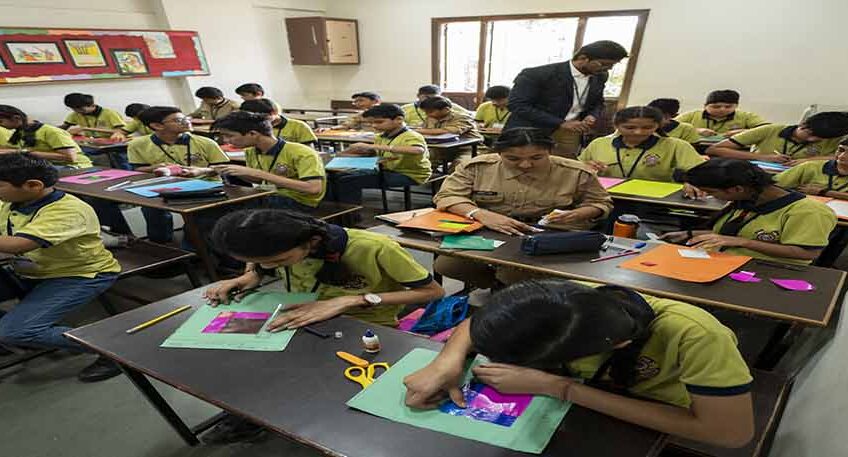
Schools in India provide students with knowledge and skills that are essential for their personal and professional growth. They learn how to read, write, solve problems, think critically, and analyze information. It is a place where children learn to interact with others from different backgrounds and cultures. They learn how to communicate effectively, respect others, and work collaboratively with their peers.
School prepares students for the challenges they will face in their future careers and lives. It equips them with the skills and knowledge necessary to succeed in the job market and contribute to society. It provides opportunities for personal growth, such as developing self-discipline, time management, and organizational skills. Students also learn to develop their creativity, imagination, and interests. Therefore, school plays a vital role in shaping the future of individuals and society as a whole.
What is the role of school?
The role of school is to provide an educational environment where students can acquire knowledge, skills, and values necessary for their personal and professional growth. The primary role of GSEB or CBSE schools in Surat is to ensure that students are prepared for the future, both academically and socially.
- Providing a safe and secure learning environment where students can learn without fear of harm or discrimination.
- Offering a curriculum that covers a wide range of subjects and topics, such as maths, science, language arts, social studies, and the arts.
- Employing qualified and experienced preschool teachers in Surat who can provide quality instruction and guidance to students.
- Assessing student progress and providing feedback to help students improve their skills and knowledge.
- Fostering a sense of community and respect for diversity among students.
- Providing extracurricular activities that allow students to explore their interests and develop social skills.
- Preparing students for the transition to college or the workforce through career counselling, college prep courses, and job readiness programs.
How does school help us in our development?
School helps us in our development in several ways:
- Social development: School provides us with opportunities to interact with others from different backgrounds and cultures. We learn to communicate, collaborate, and work in teams, which helps us to become more socially competent.
- Emotional development: School provides us with a supportive environment where we can learn to manage our emotions and develop emotional intelligence. We learn to empathize with others, regulate our emotions, and build healthy relationships.
- Physical development: School provides us with opportunities to participate in physical activities, such as sports, which helps us to develop our physical abilities and promotes a healthy lifestyle.
- Creative development: School provides us with opportunities to explore our creativity, express ourselves, and develop our artistic talents. We learn to appreciate the arts and develop our own unique styles.
- Cognitive development: School provides us with opportunities to learn new things, acquire knowledge, and develop critical thinking skills. We learn to analyze, evaluate, and apply information, which helps us to become more intellectually capable.
Frequently Asked Questions
Q. What are the most important skills learned in school?
A. One of the most important skills that we learn in school is how to think critically and solve problems. We learn how to analyze data, evaluate information, and make informed decisions. Additionally, we develop communication skills that allow us to express our ideas clearly and effectively. Other important skills include collaboration, problem-solving, creativity, time management, and leadership.
Q. What are the benefits of attending school?
A. School provides an opportunity for students to learn the necessary skills that will help them in their future. It also encourages creativity, critical thinking and problem-solving skills. Furthermore, school helps build relationships with peers and teachers, which can lead to increased self-confidence and social development.
Q. Why is it important to have a well-rounded education?
A. A well-rounded education provides an individual with the ability to think critically, solve problems, and make informed decisions. Additionally, it gives one the opportunity to explore their interests and discover new passions. With a well-rounded education, students are better equipped to navigate their future with confidence and purpose.


